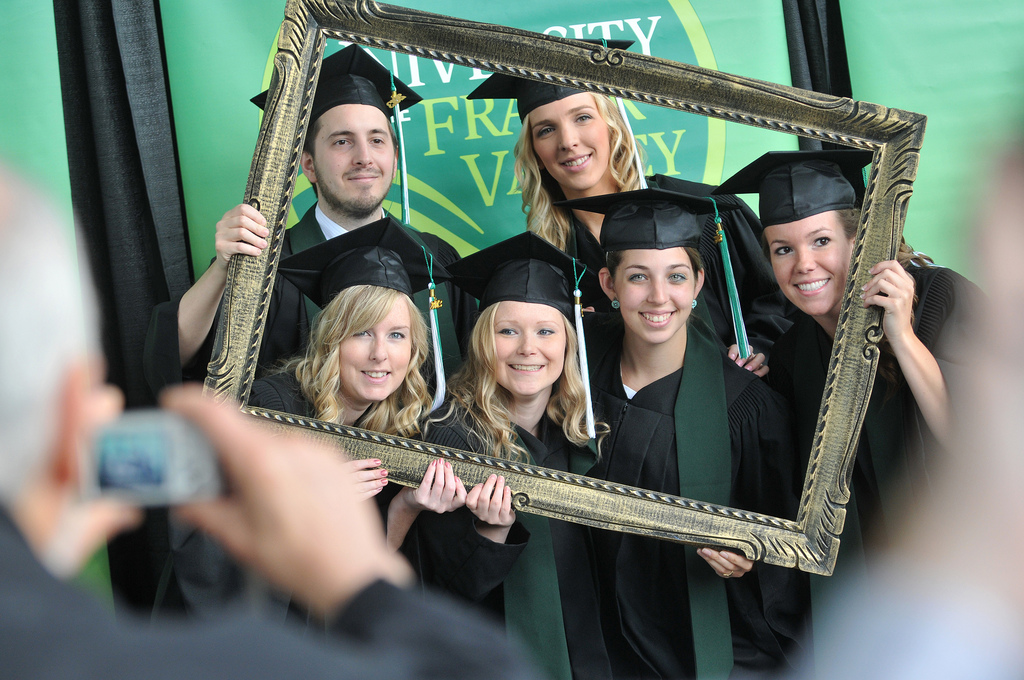By Michael Scoular (The Cascade) – Email
Print Edition: February 18, 2015

As part of UFV’s 2025 initiative and committee, a new, tuition-free section of Jeff Morgan’s Philosophy of Education course has been opened up. It will begin meeting this week, though new students are still allowed to join until Friday, February 20.
The course will run as a modified version of EDUC / PHIL 362: Harry Brighouse’s On Education will still be used as the course text, but supplementary readings will be relegated to an optional recommended list in favour of the same resource materials the 2025 visioning committee will be reading as it produces UFV’s Education Plan for 2016-20.
“The difference will be primarily that in a regular course I focus on K-12 education with some talk about higher education, whereas in this course will be mostly about higher education with very little about K-12, and really the only reason we’ll talk about K-12 is as it relates to higher education,” Morgan says.
Morgan says that while this is a course with a different aim and audience, as its final projects will compose the bulk of the course’s assignments (replacing the standard midterm, final exam, and academic paper) and directly passed to the committee, its evaluation and structure will still be based in a philosophically disciplined approach.
“I don’t consider them focus groups, because that implies that I’m asking the questions,” he says. “… The analogy would be when I take in a group of students or a few students and do independent studies.”
This focus on UFV’s education policy follows a forum hosted by provost and VP academic Eric Davis, where the idea of “2025” was used to spur criticisms of UFV’s current place in the world of academia. The initiative’s statement of purpose compared current shifts in public views of universities to the death of the Catholic Church’s “monopoly of knowledge” in the 16th century. Davis said that rather than an alarmist tone, this should be an opportunity to improve the institution.
[pullquote]“The committee must be capable of liberating itself from unquestioning obedience to the authority of custom and the dogmas of the past.”[/pullquote]
Among the “student engagement mechanisms” discussed in the forum, this course, organized at the administrative level by Ken Brealey, the college of arts’ dean of faculty, is one that is attempting to improve the scope of voices heard by planning groups.
“Historically, students have generally not been part of UFV’s educational planning process, except to the extent [that] obviously it is student interest that has caused departments to put certain ideas or wishlists into the five-year education plan,” Brealey says.
Davis suggested that courses like these could become more prominent at UFV, reminding forum attendees that accreditation is coming to mean a great deal less than evidence of produced work at university or elsewhere.
“[Grades] don’t really tell you anything,” he said, adding that “we’re hearing calls to replace departments and traditional disciplines with a new set of problem-focused disciplines.”
The way of the future, according to the forum and committee consultation goals, may have a different set of ideals and projections.
“The committee must be capable of liberating itself from unquestioning obedience to the authority of custom and the dogmas of the past,” reads another excerpt from its statement of purpose.
Brealey says the timeline of this course, beginning in mid-February, will allow it to provide student input as changes are discussed, as opposed to after the fact.
“[The course’s] schedule will be worked out with [Jeff Morgan] for the balance of the winter and possibly the first part of the early summer semester,” he says. As of last week, six students had “expressed a direct interest.” Brealey says he expects “no more than 10 or 12.”


